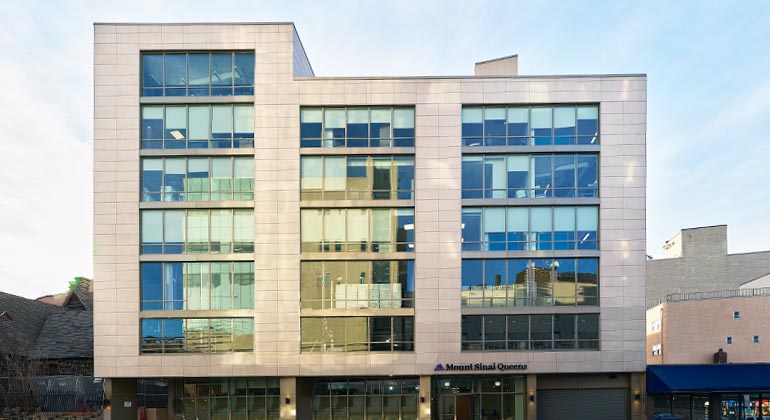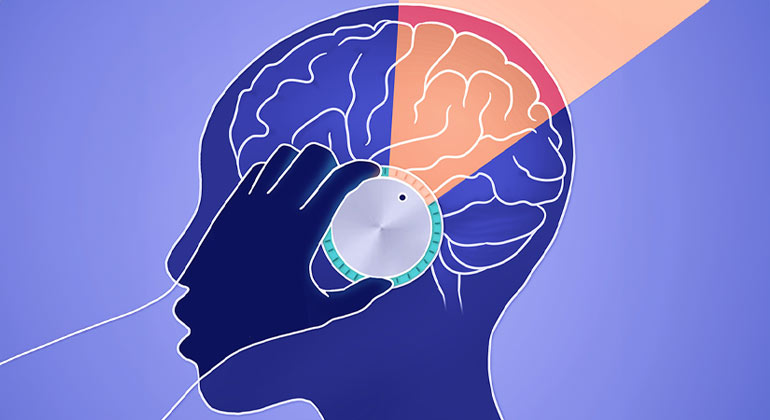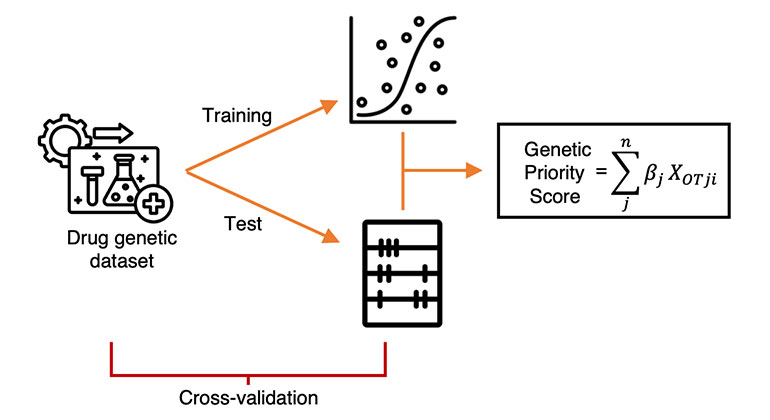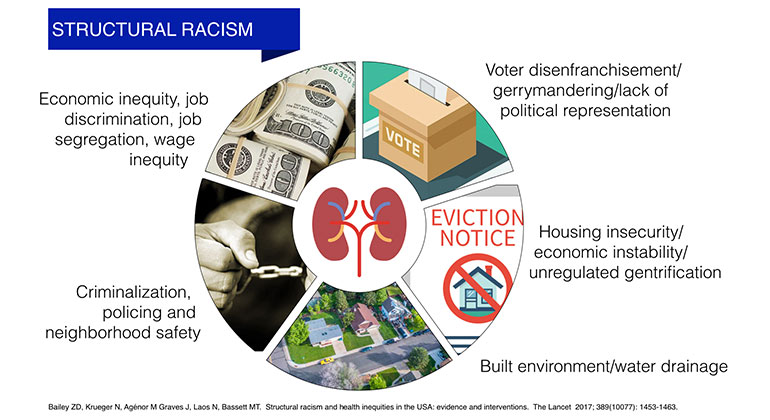Study to Assess if Knowing About Genetic Risk For Kidney Disease Changes a Person’s Lifestyle
The Icahn School of Medicine at Mount Sinai’s Institute for Personalized Medicine is launching a study designed to learn whether patients, who are aware of their genetic predisposition to chronic kidney disease, are more inclined to engage in proactive lifestyle modification with their primary care physician.
Chronic kidney disease affects about 26 million American adults. Many studies have shown that African Americans are up to seven times more likely than any other population to develop high blood pressure and subsequent complications, such as kidney disease. A large fraction of the kidney disease disparity is attributable to variations, or differences, in a single gene called apolipoprotein L1 (APOL1). In Mount Sinai’s specialized laboratory, variations in the APOL1 gene can be identified with a simple blood test.
Erwin Bottinger, MD, Director, Charles Bronfman Institute for Personalized Medicine in the Icahn School of Medicine at Mount Sinai is one of the study’s Principal Investigators. “Many patients do not have their blood pressure adequately controlled to minimize the risk for complications such as kidney disease. We will test whether sharing genetic risk information with patients and alerting their doctors through a patient's electronic health record, will achieve better control of blood pressure to reduce kidney disease risk.”
Dr. Bottinger and Co-Principal Investigator Carol Horowitz, MD, MPH, are seeking to enroll approximately two thousand African American participants with hypertension for their year-long study: Genetic testing to Understand and Address Renal Disease Disparities (The GUARDD Study). Funded by the National Human Genome Research Institute (NHGRI) the study will be conducted in a network of community health centers and primary care facilities in Northern Manhattan and the South Bronx, affiliated with the Icahn School of Medicine’s Institute for Family Health and at primary care facilities of The Mount Sinai Health System.
At the first study visit, all study participants will be asked to complete medical and family health histories, blood pressure, height, and weight measurements. If eligible, each individual will be randomly assigned to one of two groups. Group 1 will have blood drawn for genetic testing and return within 4 weeks later to discuss the results with a member of the research team. They will also be given printed information to share with their primary care physician. Those participants will return after 3 months and 12 months for a blood pressure check and to complete follow-up surveys.
Individuals in Group 2 will receive the genetic testing until the end of the study but will be asked to return at 3 and 12 months for the same measurements as those in Group 1. Primary care providers for patients enrolled in the study will also receive the results of the APOL1 genetic test and information about the test through alerts in the patients’ electronic medical record.
“We are translating the latest scientific developments for both patients and their primary care physicians,” says Dr. Horowitz. “While we can’t guarantee results, we are hopeful participants who know they carry the APOL1 gene variant will engage in proactive behaviors, under their doctor’s supervision to forestall renal failure often associated with hypertension.”
Neil Calman, MD, President and Chief Executive Officer of the Institute for Family Health, and Professor and Chair of Family Medicine and Community Health at Mount Sinai said, “Armed with this genetic information, African Americans with high blood pressure who carry variations in this gene will be able to focus on the management of their high blood pressure with their primary care providers, helping to prevent the onset of the devastating effects of kidney failure.”
For more information, contact the GUARDD study team at (212) 659-8453 or guardd@mountsinai.org
About the Charles Bronfman Institute for Personalized Medicine
The Charles Bronfman Institute for Personalized Medicine at the Icahn School of Medicine at Mount Sinai aims to refine disease risk assessment and improve responsiveness to treatments through genomic medicine and data-driven care.
About The Center for Health Equity and Community Engaged Research
Founded in 2012, The Center for Health Equity and Community Engaged Research's mission is to improve the health and health care of underserved populations by identifying causes of disparities in health and health care; developing and testing community-partnered, sustainable interventions; and disseminating lessons learned to inform policy and systems change.
About The Institute for Family Health
The Institute for Family Health is one of the largest networks of community health centers in the country. The Institute is committed to high-quality, affordable health care for all, regardless of ability to pay, and remains committed to primary care research that informs health policy and practice change.
# # #
About the Mount Sinai Health System
Mount Sinai Health System is one of the largest academic medical systems in the New York metro area, with more than 43,000 employees working across eight hospitals, over 400 outpatient practices, nearly 300 labs, a school of nursing, and a leading school of medicine and graduate education. Mount Sinai advances health for all people, everywhere, by taking on the most complex health care challenges of our time — discovering and applying new scientific learning and knowledge; developing safer, more effective treatments; educating the next generation of medical leaders and innovators; and supporting local communities by delivering high-quality care to all who need it.
Through the integration of its hospitals, labs, and schools, Mount Sinai offers comprehensive health care solutions from birth through geriatrics, leveraging innovative approaches such as artificial intelligence and informatics while keeping patients’ medical and emotional needs at the center of all treatment. The Health System includes approximately 7,300 primary and specialty care physicians; 13 joint-venture outpatient surgery centers throughout the five boroughs of New York City, Westchester, Long Island, and Florida; and more than 30 affiliated community health centers. We are consistently ranked by U.S. News & World Report's Best Hospitals, receiving high "Honor Roll" status, and are highly ranked: No. 1 in Geriatrics and top 20 in Cardiology/Heart Surgery, Diabetes/Endocrinology, Gastroenterology/GI Surgery, Neurology/Neurosurgery, Orthopedics, Pulmonology/Lung Surgery, Rehabilitation, and Urology. New York Eye and Ear Infirmary of Mount Sinai is ranked No. 12 in Ophthalmology. U.S. News & World Report’s “Best Children’s Hospitals” ranks Mount Sinai Kravis Children's Hospital among the country’s best in several pediatric specialties.
For more information, visit https://www.mountsinai.org or find Mount Sinai on Facebook, Twitter and YouTube.
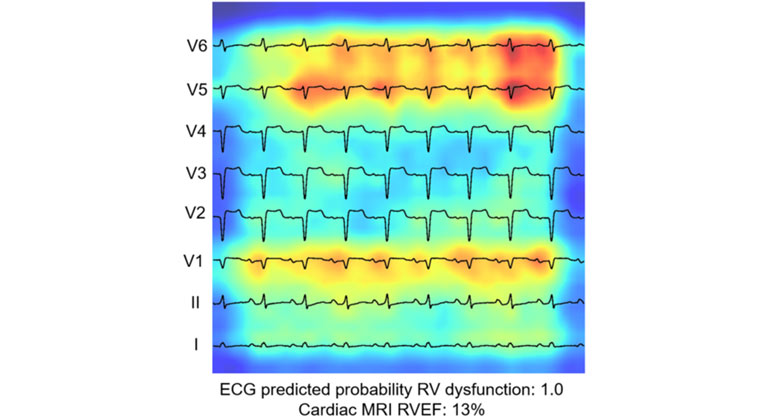
AI-Driven Study Redefines Right Heart Health Assessment With Novel Predictive Model
Jan 04, 2024 View All Press Releases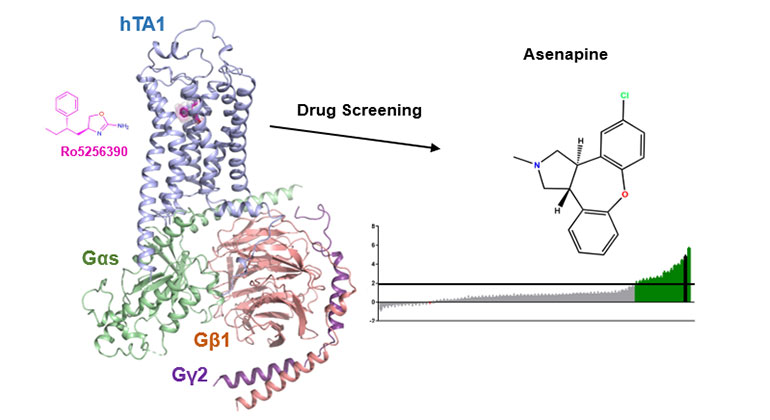
Demystifying a Key Receptor in Substance Use and Neuropsychiatric Disorders
Jan 02, 2024 View All Press Releases


